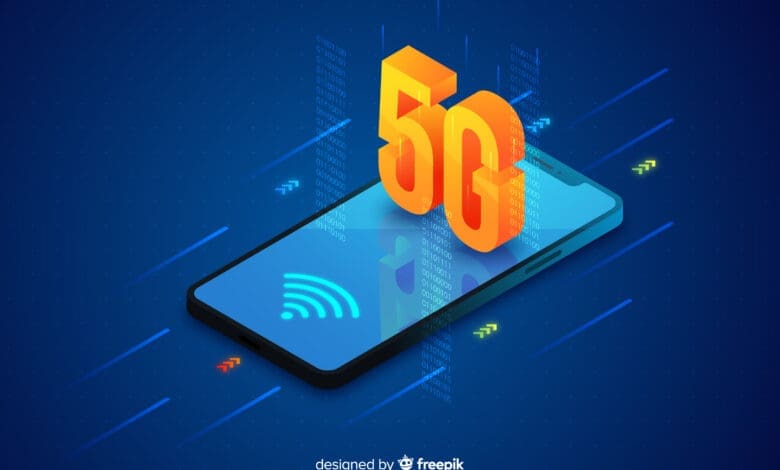The Development of 5G Technology in Indonesia: What Impact will it Have on Society?

What is 5G Technology?
5G technology is the latest generation of mobile network technology that offers much higher internet speeds than previous technologies, such as 4G. It also has a greater capacity to support more devices connected simultaneously, reducing latency and speeding up data transfer. In Indonesia, this technology has been introduced in recent years, and although it has not yet been fully adopted nationwide, its potential is already very significant.
Indonesia’s 5G network is expected to be the backbone of the ongoing digital transformation, both in daily life and the industrial sector. 5G internet speeds that are much faster than previous technologies will enable various new innovations, such as the Internet of Things (IoT), smart cities, and the development of a stronger digital economy.
4G and 5G Comparison
4G and 5G technologies have fundamental differences, especially in terms of speed, capacity, and latency. 5G offers internet speeds up to 100 times faster than 4G. In addition, latency on 5G can reach below 1 millisecond, a far cry from 4G which has an average latency of around 50 milliseconds.
In addition to speed, 5G also has greater capacity in terms of the number of devices that can be connected. In 4G networks, an increase in the number of users can slow down the connection, but in 5G networks, this capacity is increased to support a large number of devices, such as sensors in IoT.
Advantages and Development of 5G Network
The development of 5G networks in Indonesia has begun with testing in several major cities. The development of 5G infrastructure is not only dependent on mobile service providers, but also requires investment from various parties, including the government and the private sector. 5G infrastructure in Indonesia is expected to accelerate digital transformation in various industrial sectors and support the development of a more inclusive digital economy.
1. Wider Connections
5G technology enables wider and more stable connections in different areas, even in areas that were previously hard to reach by 4G networks. This opens up new opportunities for more equitable internet services.
2. Almost No Delay
The arrival of 5G is expected to eliminate delay or latency issues in various applications, such as video calls, gaming, or online conferencing. It also has a huge impact on the automotive and healthcare industries, where fast response times are crucial.
3. Energy Saving
While 5G offers higher speeds, the technology is designed to be more energy efficient. Devices connected to 5G networks require less power to send and receive data, which will ultimately extend the battery life of the device.
Disadvantages of 5G Technology
Although 5G offers many advantages, there are some challenges that still need to be overcome before full implementation can be achieved.
1. Full Radio Frequency
Most of the frequencies used for 5G networks are already used for other services, which requires proper management to avoid interference.
2. Privacy and Security
As more and more devices connect to the internet through 5G networks, privacy and security risks are also growing. Strong regulations are needed to address these potential threats.
3. Lack of Penetrating Power
5G signals tend to have lower penetrating power compared to 4G signals, so denser infrastructure is required to cover a wider area.
5G Impact on Society
The implementation of 5G technology will not only have an impact on the technology sector, but will also affect various aspects of people’s lives.
1. Education
With 5G internet speeds, distance learning will become more accessible and more interactive. The use of virtual reality (VR) and augmented reality (AR) technologies in education will also become more common.
2. Daily Life
The arrival of 5G enables the integration of smart devices in homes and cities. This means we can manage household devices, transportation, and public utilities more easily and efficiently.
3. Jobs
With better speed and stability, 5G will support a wide range of remote work. In addition, the manufacturing and logistics industries will also benefit greatly from automation and robotics powered by this technology.
Positive Impact on the Environment
5G technology also has a positive impact on the environment. With a more efficient system, energy usage will be reduced. Also, with technological advancements allowing more remote work, emissions from travel can also be reduced.
Investment and Economic Impact
The development of 5G infrastructure in Indonesia requires large investments from various sectors. However, its impact on the economy is predicted to be very significant. The use of 5G in the industrial sector, especially in the manufacturing, logistics, and healthcare sectors, will increase efficiency and productivity. In addition, the digital economy will also grow, with the support of stable and fast 5G internet speeds.
Conclusion
5G technology is one of the important milestones in the development of communication technology in Indonesia. With better speed, capacity, and efficiency, 5G will not only accelerate digital transformation but also have a positive impact in various sectors, from education, industry, to the environment. However, challenges in terms of frequency, security, and infrastructure still need to be overcome so that Indonesia can make the most of this technology to support the digital economy in the future.




